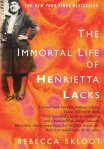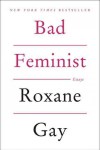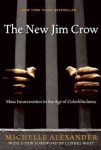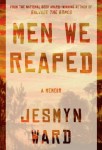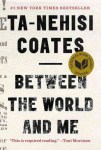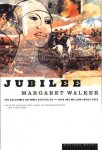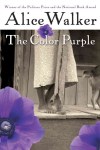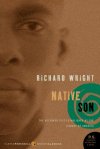The highly divisive election 2016 is over, and the Internet has been blowing up ever since. Some of us are feeling victorious and hopeful, and some of us are feeling frightened and hopeless. If your Facebook feed is anything like mine, the usual pictures of babies and cats are scattered among condemnations of riots and also calls for solidarity with those who have felt targeted by the political rhetoric this past election season.
Here in our rural-ish town, it’s no secret that we are not as diverse – ethnically, culturally, religiously, economically – as the cities to the north and south of us. It’s possible to not understand why our friends and neighbors are fearful, or why the news articles dissecting the election keep bringing up the uncomfortable topic of “privilege.” And that’s where the Cheshire Library comes in. We have memoirs, novels, and studies by and about African Americans, Latinos/as, Muslims, Jews, LGBTQs, persons with disabilities, documented and undocumented immigrants, and other minority voices which we can’t always hear in our daily lives. Today, we’re listing titles that explore the African American experience in particular. (Not all of us can sit down with print books, so where possible, the links will direct you to a list of the multiple formats in our catalog in our title.)
Let’s start with nonfiction picks:
Men We Reaped by Jesmyn Ward
Jesmyn Ward first came to our attention with Salvage the Bones, which won the National Book Award in 2011. Her 2014 memoir Men We Reaped explores growing up poor and Black in Mississippi, with her story framed by five men she knew who died too young. Make sure you’ve got tissues handy.
Bad Feminist: Essays by Roxane Gay
A culture critic with a Twitter absolutely worth following, Gay’s funny and entertaining essays touch on race, feminism, and politics as she dissects Sweet Valley High, The Help, and Chris Brown.
The Other Wes Moore by Wes Moore
Two young men, both named Wes Moore, both growing up fatherless in Baltimore. One is a Rhodes scholar, and the other is serving a life sentence for murder. Why did they end up with such different paths, and how close did each Wes Moore come to having the other’s path?
Between the World and Me by Ta-Nehisi Coates
Another National Book Award-winning author, Coates delivers his thoughts on race, history, and identity in the form of letters to his adolescent son. He dives into the Black Lives Matter movement, his childhood in Baltimore and college years at Howard University, and his views on the concept of race itself.
The New Jim Crow: Mass Incarceration in the Age of Colorblindness by Michelle Alexander
Racism in America, Alexander argues, hasn’t been eliminated, but redesigned. Her book examines the impact of the War on Drugs on African American communities, and how the election of Barack Obama and the resulting “colorblindness” has prevented us from acknowledging the full extent of that impact.
The Immortal Life of Henrietta Lacks by Rebecca Skloot
Since its publication in 2010, this has become required reading in high schools and book clubs alike. (In fact, we have a book group in town currently reading this!) Henrietta Lacks’ cancerous cells were taken without her consent over 60 years ago, and they’ve been used for important medical discoveries like the polio vaccine and in vitro fertilization. Yet, Henrietta’s living family members cannot afford health insurance. It’s a great book that explores bioethics and the intersections of race, poverty, and medical research.
I Know Why the Caged Bird Sings by Maya Angelou
Angelou’s autobiography is another required read in many school, and in it she shows her transformation from a young girl subjected to racism, sexism, and violence, to a confident and capable young mother.
The Souls of Black Folk by W.E.B. DuBois
Essays from one of the most influential African American activists and writers. DuBois wrote it in 1903 as a reflection on racism pervading the U.S. since Emancipation, and it influenced future civil rights movements.
And now for you fiction lovers:
Invisible Man by Ralph Ellison
For fans of the classics, look no further than Invisible Man. Ellison is a master writer who draws upon influences like T.S. Eliot and Dostoevsky, while telling a story of a nameless young man’s journey through America in the middle of the 20th century.
Americanah by Chimamanda Ngozi Adichie
You might know Adichie from her TED Talks on “The Danger of a Single Story” (a compelling argument for reading diverse literature) or “We Should All Be Feminists,” with the latter being featured in Beyonce’s song “Flawless.” This 2013 novel focuses on a Nigerian-born young woman who emigrates to America, and it takes a look at race and immigration in contemporary Nigeria, the UK, and the US.
Jubilee by Margaret Walker
Described as Gone With the Wind through the eyes of an emancipated slave, this novel is based on the life of Walker’s great-grandmother, who was the child of a slave and a plantation owner, and her experiences during the Civil War and Reconstruction.
The Color Purple by Alice Walker
A Pulitzer Prize-winning story that still holds up decades after its publication, it’s told through letters exchanged by two sisters over the course of their very different lives.
Native Son by Richard Wright
Wright’s novel, a bestseller when it came out in 1940 and a frequently-challenged book in schools, shows the systemic poverty and hopelessness experienced in Chicago’s South Side.
Song of Solomon by Toni Morrison
Morrison is a prolific writer, and Song of Solomon is considered one of her best works. This particular novel tells the story of a rich Black family in the Midwest, from the beginning of the Harlem Renaissance to the beginnings of the Civil Rights Movement.
Further reading:
- The Mis-Education of the Negro by Carter Woodson (1933)
- The Sellout by Paul Beatty (2015)
- Invisible Man, Got the Whole World Watching: A Young Black Man’s Education by Mychal Denzel Smith (2016)
- Stamped from the Beginning: The Definitive History of Racist Ideas in America by Ibram X. Kendi (2016)
- Playing in the Dark: Whiteness and the Literary Imagination by Toni Morrison (1992)
- Ghettoside: A True Story of Murder in America by Jill Leovy (2015)
- Born Bright: A Young Girl’s Journey from Nothing to Something in America by C. Nicole Mason (2016)
- Sister Citizen: Shame, Stereotypes, and Black Women in America by Melissa Harris-Perry (2011)
- Citizen: An American Lyric by Claudia Rankine (2014)
- Some Sing, Some Cry by Ntozake Shange (2010)
- It’s Bigger Than Hip-Hop: The Rise of the Post Hip-Hop Generation by Molefi Asante (2008)
- The African American Century: How Black Americans Have Shaped our Country by Henry Louis Gates, Jr. and Cornel West (2000)
